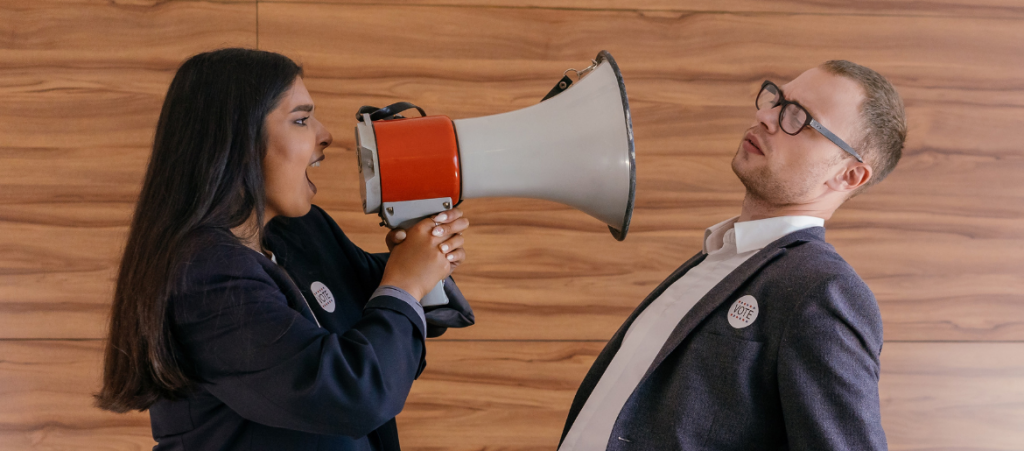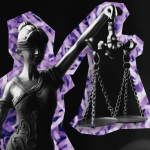
This year has made it very clear that we all need to be careful with what we say on the internet – confirmed when Peter Dutton won his defamation case against refugee activist Shane Bazzi. But with a Federal election to be announced in the coming months, how does this affect the public’s ability to criticise a politician? How can a regular person safely criticise public figures without fear of being sued for defamation by the rich and powerful?
We explore what you can and can’t say when holding public figures accountable.
What do the laws look like right now?
Defamation is the publication of material which harms a person’s reputation. It covers written material, pictures, or spoken statements, which includes social media posts, comments, replies.
To be successful in a defamation case, the plaintiff needs to prove that the material published by the defendant contained one or more defamatory “imputations”. This is where you don’t just look at the single word or sentence in isolation, but include the context and interpretation of the matter. Michael Bradley, managing partner at Marque Lawyers, explains that this is what makes this area of law so slippery. “One of the tricks with defamation law is that it is measured not against the words that have been said or written, but the meaning.”
For example, if I posted a tweet saying that Mickey Mouse hasn’t paid his taxes in five years, I have no explicitly written that the plaintiff (ol’ mate Mickey) is a fraud. But it’s obvious my tweet is insinuating that tax fraud has been committed. So, for this example the imputation would be: ‘The plaintiff is a fraud.’
If that seems like a very subjective process, that’s because it is. “The problem is you end up with a judge who is usually an old white man, sitting in a court, putting himself in the shoes of a Twitter audience, for example, this has just happened in the Dutton case,” Bradley says. In fact, the judge in Erin Molan’s racism defamation case admitted as much in the trial.
“Good luck for the judge that tried to work out what an ordinary person who follows Shane Bazzi on Twitter thinks he meant.”
Can you call a politician corrupt?
We asked Bradley about specific terms used to criticise politicians, including: corrupt, racist and misogynist. He said that if a term or label could affect a person’s reputation, then there is always a risk that it would be defamatory.
There is a higher risk of being sued for making statements that could be proven or disproven. So, anything related to a crime – rapist, corrupt, thief, murderer – or even claiming that someone is cheating on their spouse or having an affair with a staffer.
Staying on the safer side of defamation law means understanding the difference between statement of fact and statement of opinion. The latter gives more leeway. For example, if you say “Scott Morrison is corrupt” – that would be making a statement of fact (he either is corrupt or he isn’t) and he could sue you for defamation over it. If you say “Scott Morrison is an asshole” – that’s just a statement of opinion. It’s not an objectively provable proposition, and so he could not sue you for this.
You can state opinions based on facts or things that are known, but applying a concrete label does put you at risk.
As mentioned, defamation law takes the entire context of a statement into account, including things like:
- Who’s the audience?
- What are the surrounding circumstances?
- What information can we assume people already know about this?
- How are they going to read it?
Bradley notes that the distinction between opinion and fact can be very fine, which is why social media comments can be risky. For example, many people have made negative comments on social media about Gladys Berejiklian’s ICAC hearings that have included words like ‘corrupt’. If the investigation finds that Berejiklian did not abuse her power or breach the public trust, they people could potentially be held liable for defamation as her reputation has been damaged by those comments.
Has suing a poor person for defamation over a tweet and winning $35k damages improved Peter Dutton’s reputation? What positive social purpose has the law served today?
— marquelawyers (@marquelawyers) November 24, 2021
Different rules for different people
Technically defamation law exists to protect everyone equally, but when you zoom out it’s clear that the structures protect certain people more than others.
There is a clear power imbalance between politicians and the public when it comes to defamation. The Parliamentary Privileges Act 1987 allows MPs to say anything in Parliament without the threat of a civil lawsuit. These privileges and immunities allow the double standard of politicians being able to speak their minds fully and and frankly on important matters, while members of the public cannot do the same.
The Act also protects a culture where genuine discussion of policy and law reform are sidelined for political stunts and point scoring. It also contributes to a culture of misogyny and disrespect in what is meant to be a place that reflects the values of our society.
It’s not just elected officials either. Other public figures, including business leaders and celebrities can leverage defamation laws because they all have one thing in common – they can afford to. Defamation cases can be extremely expensive for a private citizen, so it’s unlikely that these laws would ever benefit us. At $35,000 the compensation Bazzi has to pay Dutton is small as far as defamation cases go – but this is a huge amount of money for most regular people. Bazzi has said this could bankrupt him.
Private citizens should be able to criticise public figures and exercise their freedom of speech without the fear of such major financial and legal repercussions.
What changes to defamation laws need to be made to encourage political discussion?
Bradley feels very strongly that changes need to be made to the current defamation laws. “The first thing I would do is throw the Defamation Act in the bin and start again, because it is fundamentally flawed.”
He believes one of the critical problems in Australia is high profile defamation cases are becoming too common – we have double the number of cases than the UK, but less than half the population. The widespread promotion of these cases creates culture where people are too scared to voice criticism, and high profile figures can use the mere threat of a lawsuit to have unfavourable comments wiped from the Internet. “The fear of a defamation lawsuit is causing a blanket to be thrown over public debate and this is devastating for democracy.”
To fix this, Bradley says we should adopt an element of U.S. defamation law; public figures can’t sue, unless they can prove that the intent was malicious. “My personal view is that public figures shouldn’t be able to sue for defamation. I think that’s a better position because it supports free speech and supports open public debate, it enables important issues to be aired and allegations to be made and explored.
“And ultimately that’s what democracy requires.”



